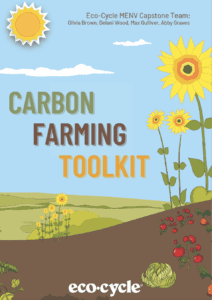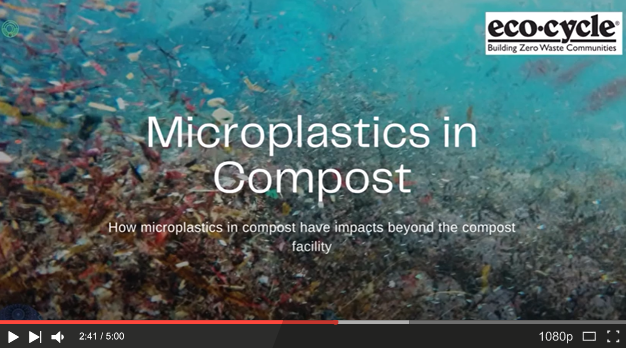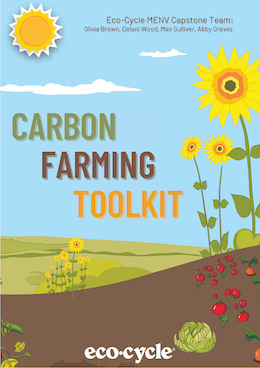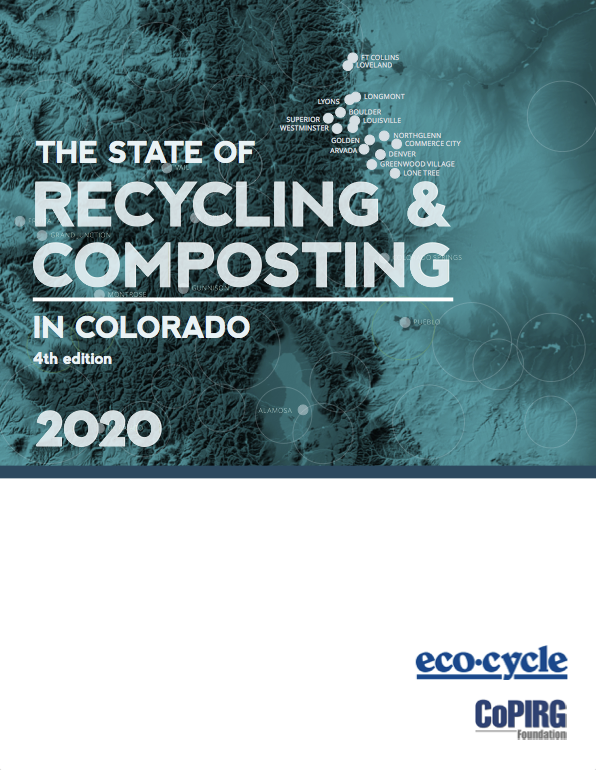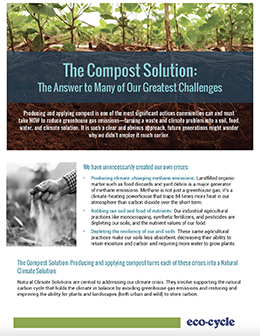Community-Based, Natural Climate Solutions
To avoid the worst effects of climate change, reducing emissions is not enough: we must take action to remove excess carbon dioxide from our atmosphere and store it long-term. Research by the Marin Carbon Project proved that carbon farming, or implementing regenerative agricultural practices to restore soils’ living ecosystems, increases the rate at which soils can sequester carbon from the atmosphere.
In 2019, Eco-Cycle launched our Community Carbon Farming Campaign (CCFC), a three-year study of the potential for carbon sequestration on urban lands. We recruited more than 230 residents to conduct a community science project to implement carbon farming techniques—including the application of compost—on a section of their lawn while maintaining a “control” section. The trial was completed at the end of 2021. Our work now turns to developing the framework for a model that can be replicated by communities across the nation.
We performed our three-year trials of urban carbon farming with two groups (600 participants):
- Community Carbon Farmers: Around 230 local residents received training and direct support from Eco-Cycle, including delivery of soil amendments and taking soil samples for testing.
- Observational Carbon Farmers: Over 300 participants, with no geographic limits, received online training, step-by-step guidance on amendment application and soil testing, and other resources. The approach allowed us to develop a model for communities and individuals, wherever they may be located.
Additional Project Goals and Activities
- Analyze trial results while building connection to soil. Once lab tests were completed, we analyzed the carbon sequestration results for each of the five different treatments tested in our study in relation to the soil texture, and presented results in an interactive, online display. Participants are able to see their own results as well as aggregate results, and use filters to compare their results by soil texture and soil amendment treatment. The intent is that participants will gain a deeper understanding of and connection to their own soil as we also learn the potential for storing carbon in urban soil.
- Develop replicable models. With feedback from the three-year trial, and a toolkit of resources and videos, we have turned the Community Carbon Farmer study into a model that can be shared widely. We worked with our Observational Carbon Farmers to develop a model for urban carbon farming that can be adopted in communities where a DIY approach is most appropriate. We are also taking lessons learned from our Community Carbon Farmers to develop a model for urban carbon farming in communities that have local organizations capable of providing direct support to local participants.
























